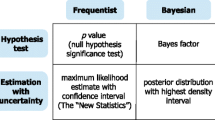Abstract
We discuss how issues of information and computation interact with logic today, and what might be a natural extended agenda of investigation.
Similar content being viewed by others
References
Abramsky, S. (1996), ‘Semantics of Interaction: an Introduction to Game Semantics', in P. Dybjer and A. Pitts, eds., Proceedings 1966 CLiCS Summer School, Isaac Newton Institute, Cambridge: Cambridge University Press, pp. 1–31.
Abramsky, S. (1998), ‘From Computation to Interaction, towards a science of information', BCS/IEE Turing Lecture.
Adriaans, P. (2002), The Robosail Project, keynote lecture, ECAI-2002, Lyon.
Axelrod, R. (1984), The Evolution of Cooperation, New York: Basic Books.
Baltag, A., Moss, L. and Solecki, S. (1998), ‘The Logic of Public Announcements, Common Knowledge and Private Suspicions’, Proceedings TARK 1998, pp. 43–56, Los Altos: Morgan Kaufmann Publishers, Updated version, 2003, Department of Cognitive Science, Indiana University, Bloomington, and Department of Computing, Oxford University.
Belnap, N., Perloff, M. and Xu, M. (2001), Facing the Future, Oxford: Oxford University Press.
Bod, R. (1998), Beyond Grammar, Stanford, CA: CSLI Publications.
Fagin, R., Halpern, J., Moses, Y. and Vardi, M. (1995), Reasoning about Knowledge, Cambridge, MA: The MIT Press.
Gärdenfors, P. (1987), Knowledge in Flux: On the Dynamics of Epistemic States, Cambridge, MA: MIT Press.
Hendricks, V. (2002), ‘Active Agents', PHILOG Newsletter, Roskilde, to appear in J. van Benthem and R. Van Rooy, eds., special issue on Information Theories of the Journal of Logic, Language and Information.
Hintikka, J. (1973), Logic, Language Games, and Information, Oxford: Clarendon Press.
Kamps, J. (2000), A Logical Approach to Computational Theory Building, with Applications to Sociology, dissertation, ILLC Amsterdam.
Kelly, K. (1996), The Logic of Reliable Inquiry, Oxford: Oxford University Press.
Kirkpatrick, S. and Selman, B. (1994), ‘Critical Behavior in the Satisfiability of Random Boolean Expressions’, Science 264, pp. 1297–1301.
Mouwen, C. (1998), The Dynamics of Opinion Change, Tilburg: Tilburg University Press.
Osbourne, M. and Rubinstein, A. (1994), A Course in Game Theory, Cambridge, MA: MIT Press.
Parikh, P. (2001), The Use of Language, Stanford, CA: CSLI Publications.
Parikh, R. (1985), ‘The Logic of Games and its Applications’, Annals of Discrete Mathematics 24, pp. 111–140.
Parikh, (2002), ‘Social Software’, Synthese 132, pp. 187–211.
Parikh, R. and Ramanujam, R. (2002), ‘A Knowledge Based Semantics of Messages', CUNY New York & Chennai, India, to appear in J. van Benthem and R. van Rooy, eds., special issue on Information Theories of the Journal of Logic, Language and Information.
Pauly, M. (2001), Logic for Social Software, dissertation DS-2001-10, Institute for Logic, Language and Computation, University of Amsterdam.
Reynolds, M. (2002), ‘Axioms for Branching Time’, Journal of Logic and Computation 12, pp. 679–697.
Rott, H. (2001), Change, Choice and Inference, Oxford: Clarendon Press.
Shoham, Y. (2002), Multi-Agent Systems, lecture notes, Department of Computer Science, Stanford University.
Skyrms, B. (2002), The Stag Hunt: Evolution of Social Structure, Department of Philosophy, UC Irvine.
Stalnaker, R. (1996), ‘Knowledge, Belief, and Counterfactual Reasoning in Games’, Economics and Philosophy 12, pp. 133–163.
Stalnaker, R. (1999), ‘Extensive and Strategic Form: Games and Models for Games’, Research in Economics 53(2) pp. 93–291.
van Benthem, J. (1966), Exploring Logical Dynamics, Stanford, CA: CSLI Publications.
van benthen, J. (2002), ‘One is a Lonely Number', invited lecture, Colloquium Logicum, Muenster. Report PP-2003-07, ILLC, University of Amsterdam.
van Ditmarsch, (2000), Knowledge Games, dissertation DS-2000-06, ILLC Amsterdam and University of Groningen.
van Ditmarsch, (2002), ‘Keeping Secrets with Public Communication', Department of Computer Science, University of Otago.
van Rooy, R.(2002), ‘Quality and Quantity of Information Exchange', to appear in J. van Benthem and R. van Rooy, eds., special issue on Information Theories of the Journal of Logic, Language and Information.
Wansing, H. (2002), ‘Diamonds are a Philosopher's Best Friends’, Journal of Philosophical Logic 31, pp. 591–612.
Wooldridge, M. (2002), An Introduction to Multi-Agent Systems, John Wiley, Colchester.
Zanardo, A. (2002), ‘First-Order and Second-Order Aspects of Branching-Time Semantics', Department of Mathematics, University of Padova, to appear in Proceedings HPLMC-02, San Sebastian.
Author information
Authors and Affiliations
Rights and permissions
About this article
Cite this article
van Benthem, J. Logic and the Dynamics of Information. Minds and Machines 13, 503–519 (2003). https://doi.org/10.1023/A:1026296600182
Issue Date:
DOI: https://doi.org/10.1023/A:1026296600182




